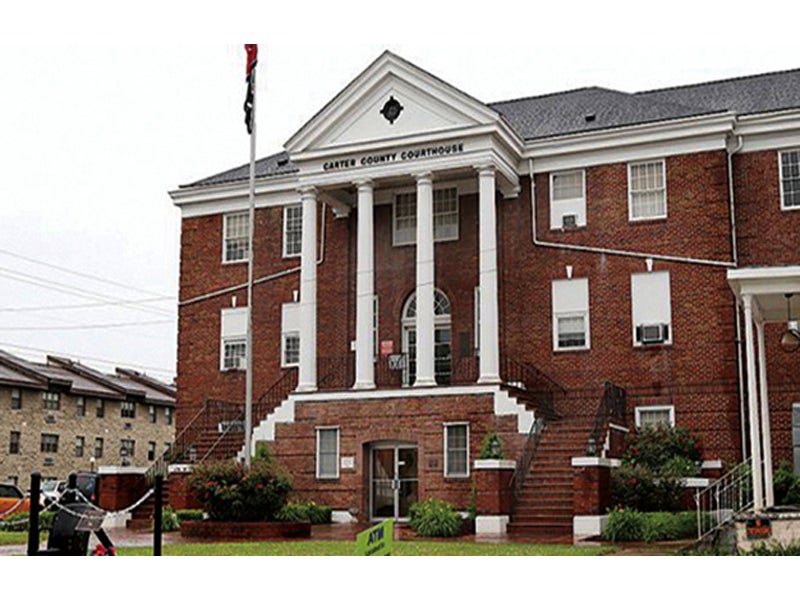State audit reveals questionable practices at Carter County Landfill under Lyons
Published 10:29 am Wednesday, November 29, 2023

- File Photo Carter County Courthouse
|
Getting your Trinity Audio player ready...
|
STAFF REPORTS
The Office of the Comptroller of the Treasury this week released its investigative report of the Carter County Solid Waste Department concerning allegations of malfeasance. The investigation was initiated after a county official noted a questionable relationship and questionable business practices at the landfill by then landfill director Benny Lyons.
The investigation was limited to selected records for the period January 2022 through February 2023.
The results of the investigation have been given to the Office of the District Attorney General of the First Judicial District for review and to determine if there was any illegal action on the part of the landfill director.
An eight-member committee consisting of Carter County commissioners appoints the Carter County Solid Waste Department director, who oversees a team of CCSW employees and manages day-to-day operations of the CCSW. Lyons resigned as CCSW director in July 2023 after county officials questioned his management practices. He had served as landfill director for 15 years. Before becoming landfill director, Lyons was previously the building inspector and was offered the landfill director’s job after the former director for the landfill retired.
The investigation by the Comptroller’s office revealed the former CCSW director had a questionable business relationship, which involved owning and operating a junk removal business that maintained a customer charge account at the county landfill. The report noted: “Due to accounting system inaccuracies and insufficient supporting documentation for customer account transactions and balances, investigators were unable to verify the accuracy of transactions on the business account or determine if the former director personally benefitted from conducting private business at the county landfill he managed.”
However, Tenn. Code Ann. No. 12-41-101 states it is unlawful for any officer, director, or other person whose duty it is to vote for, let out, overlook, or in any manner to superintend any work or any contract in which any county shall or may be interested, to be directly or indirectly interested in any such contract.
The audit report recommended county officials closely monitor and account for employee-owned businesses that contract or conduct business with the county to reduce risks of potential conflicts of interest, undue influence over transactions, or misappropriations going undetected.
The second deficiency noted by the audit was the landfill maintained insufficient financial policies.
The audit found that CCSW maintained financial policies for collections and billings; however, investigators determined the policies were insufficient, causing numerous accounting inaccuracies involving collections, deposits, and customer charge accounts.
According to the Solid Waste Management Act of 1991, Tenn. Code Ann. No. 68-211- 874, each county, solid waste authority, and municipality shall account for financial activities related to the management of solid waste in accordance with generally accepted accounting principles (GAAP) that provide sufficient detail to identify all applicable revenues and expenditures related to the management of solid waste. CCSW should approve and maintain clear and complete financial policies and procedures to ensure an accurate accounting of all financial transactions and to reduce the risk of errors and misappropriations without prompt detection.
The third deficiency found by the audit was that the landfill maintained insufficient supporting documentation for customer charge accounts.
“CCSW utilized a computer system to account for landfill fees; however, the former CCSW director provided insufficient supporting documentation to investigators for monthly customer charge accounts. Due to insufficient supporting documentation on customer charge accounts, investigators were unable to verify the accuracy of transactions and collections on the accounts. CCSW should account for and maintain supporting documentation for all customer charge account transactions to ensure the accuracy and completeness of transactions and to reduce the risk of misappropriations without prompt detection,” the audit finding revealed.
According to the report, Carter County officials indicated that they have corrected or intend to correct these deficiencies.




